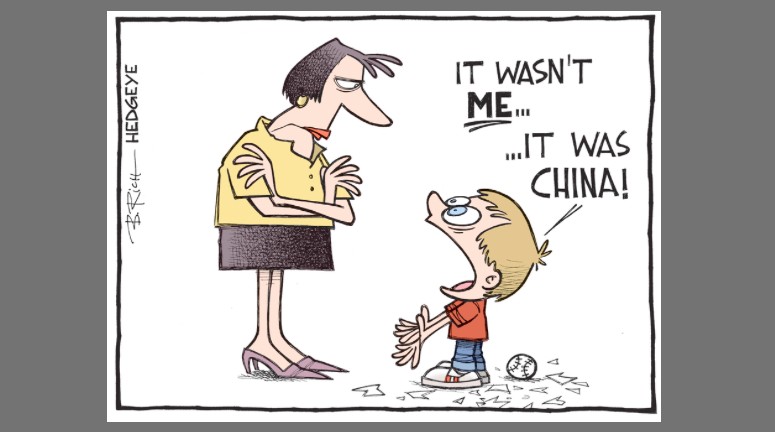
by Mary W Maxwell, LLB
Although the three words evidence, proof, and blame may conjure up legal procedures (“Was there any DNA evidence?”), this article does not take its definitions exclusively from law. It begins by looking at the basic functions of intellect and emotion that underpin those three things.
I ask the reader, for a moment, to think about evidence, proof, and blame without regard to whether such-and-such a thing is regarded as legal proof, or whether a court will allow such-and-such a thing to be entered as evidence.
Courts arose late in history compared to the brain functions discussed here. We are always calculating evidence, proof, and blame, in our daily lives. These concepts are essential to our negotiating both the physical world and the social world.
Blame
Start with blame. Are you unhappy about something? Maybe a lack of heat in your apartment? You might blame the landlord: “He’s stingy and doesn’t care about us.” You might blame yourself: “If I had been more focused when the shop was selling floor heaters pre-season, I’d by comfy now.” You might blame your husband: “Stupid Bob should have remembered to call the gas company to connect our service.”
Blaming is very reliving. Some people seem to have it as their predominant trait. You will have met someone whose blaming is not even based on reality. A superstitious person can blame curses from gnomes, and many people blame an ethnic group in their midst for all sorts of trouble, without or without justification.
The aforementioned activities of the brain are typically unconscious. But if a person were being blamed for committing a crime, or some non-crime mean deed, one hopes the blamer would take more care in determining guilt.
Evidence
The ability to connect cause and effect is a major feature of the mind. Various animal species can do this to some extent. A rodent may pick up the scent of a conspecific or a predator, and thus know whether to pursue that path or run from it.
Humans deal with evidence day in and day out. It usually occurs without our giving it much thought. Upon entering his house (if it’s a house where the family leave their shoes by the door), he will know who’s home by how many pairs of shoes he sees. The evidence is the shoes.
The shopper may squeeze an avocado to decide if it is ripe enough to buy. Or read the use-by date on a loaf of bread. She is looking for evidence of the quality of the food. You get the idea. We are always weighing the evidence of something or other.
We are also weighing our impressions of the honesty of other persons. We do it non-stop. It is an evolved trait. I we didn’t do it, we’d be vulnerable to every liar, thief, and exploiter.
Scientific Evidence and Proof
Now for the scientists. They can’t get away with making unconscious or prejudiced connections between cause and effect — people are depending on them to offer proof of what they claim.
A scientist can glean proof from nature or can carry out an experiment to determine what’s going on. Isaac Newton saw an apple fall and said “Aha! There must be a gravitational pull toward Earth.” But at that point he was only theorizing. Further work would need to be done to establish the gravitational pull.
A botanist may leave certain plants without water for x number of days to prove the maximum number of days a plant can survive without water. But has she attained actual proof?
I believe that “proof” is always subjective, in the mind of the audience. If that botanist carried out several trials, and made allowance for other factors, and perhaps had her study duplicated by others who had no interest in the matter, we might say she proved the case. Or we may continue to doubt that she had sufficient evidence, or doubt her honesty.
It really is up to us to bestow the word “proof” on something.
In the famous case of Building 7 that crashed down to the ground at the World Trade Center on 9-11, many a person can look at what I consider proof of controlled demolition and say, “No, it may have been office fires.”
Naturally, institutionalized science has promulgated certain standards that make for proof. But this is always conventional. The state health department and the American Medical Association may nominate a certain percent of white blood cells as “proof” that a patient has leukemia – and yet the two standards may differ!
Now Let’s Look at Courts
The institution that we presently call a court is the outgrowth of an earlier tradition whereby individual members of society who were in a dispute could turn to a leader to help them sort it out.
Both would tell their side of the story, probably bringing supporters along for effect. Each side could offer evidence, typically testimony. “I saw him steal the fruit.” Or it may have been physical evidence “Look at this wounded chicken.”
The proof as to guilt would, I submit, consist of the verdict! If the judge decided that A stole fruit from N, “that’s the proof.”
Again, this is owing to a habit of the human brain. Our sense of authority is very much mixed in with our sense of factual correctness. (And unfortunately our brain classifies info from the big media outlets as “authority.”)
My point is that there’s no advantage to us to try to find the exact meaning of the word “proof,” as though a definition would make us able to finalize a decision.
It’s all relative. When I show the cashier a sales-slip that lists the item I purchased yesterday, I am pretty sure she takes that as proof that I did buy that item from her shop yesterday. But if I wanted to prove that Smith embezzled a billion dollars from the bank, more would be needed than one piece of paper.
Modern Courts’ Guidance
There are several types of court cases, most of them being civil or criminal. In a civil action, the plaintiff (i.e., one who make a complaint) brings evidence that the defendant breached a contract or harmed his property or whatever.
The court is not supposed to act for either side, even if one side is the government. (Aside: I am presently in a civil action, Maxwell v Trump. The court is definitely siding with the defendant, the president, as it has done in all 24 war-powers cases since 1952.)
In the US Bill of Rights, Amendment VII says “In suits at common law, where the value in controversy shall exceed twenty dollars, the right of trial by jury shall be preserved.”
Most of the constitutional protections of due process, however, are found in the Sixth Amendment, for criminal prosecutions. The defendant:
“shall enjoy the right to a speedy and public trial, … to be confronted with the witnesses against him, … and to have the assistance of counsel for his defense.”
Legislatures have enacted laws as to what kind of evidence or what level of proof is required in certain types of situations. If it is not mentioned, the default position is that the standard of proof in a civil action is that the case must be proved “on the balance of probabilities” while for a criminal conviction it must be proved “beyond reasonable doubt.”
Over the years, judges have added to the law of due process by setting precedents and sometimes laying out “doctrine” or “tests.”
Famously, in Brady v Maryland, in 1963, the US Supreme Court made it a rule (“the Brady rule”) that if the prosecutor has evidence in file that supports the innocence of the accused, she has to fork it over.
Less famously, the Maryland Court of Appeals ruled that all pit bull dogs are to be deemed vicious. Previously, a plaintiff suing over a dog bite had to prove that the dog’s owner was aware of its dangerous behavior. So it’s not that the court changed the quality of evidence (such as the medical record of the bite) but it eased the burden of getting damages.
Note: it is the legislature not the judiciary that makes new law. If enough pit bull owners pressure the Maryland House or Senate, they may win a law stating that, once again, the offending dog has to have been recognized individually as a dangerous animal.
The Law of Evidence
Not only can legislators place a remark in a particular law as to what will constitute evidence, or what standard of proof must be met, they can enact whole laws on the subject of evidence.
The Commonwealth Evidence Act 1995 applies in federal court and in the state courts of the three southeast states — Victoria, Tasmania, and New South Wales — that have opted for it. At the website of the National Archives of Australia (naa.gov.au), Australia, we see this paraphrase of a part of the Commonwealth Evidence Act on admissibility and weight of evidence.
“Although evidence of information about a particular fact may be admissible, the court will not necessarily believe or act on that evidence. If the information about a fact is the direct observation of a witness, the court may simply disbelieve the witness.
“This may occur for a number of reasons. For example, it may have been a long time since the events in question happened, the witness may give confused testimony, or may have some physical incapacity (e.g. poor eyesight) or have some personal inclination or motivation that causes the court to disbelieve their evidence (e.g. it may be shown that the witness is inclined to lie, or bears ill-will against someone connected with the proceeding).
“More usually, evidence of information given in court will not be ‘direct observation’ evidence. Instead it will be evidence that suggests, or from which it can be inferred, that a particular fact occurred. In this regard, the weight of evidence of a record can be adversely affected if it is not contemporaneous with the events it documents (i.e. if it is created well after the events it purports to record).”
Hearsay
A witness in court is not giving hearsay if he says what he himself saw or heard. But if he says what another person claims to have seen or heard, that is hearsay and broadly speaking it is inadmissible as evidence. If a witness blurts it out, the judge will instruct the jury to ignore it.
A document submitted as evidence may also contain hearsay. The document may be admissible but the judge may give little weight to it. The following example is provided at naa.gov.au:
“The Commonwealth, in litigation, seeks to prove that a certain conversation took place. The Commonwealth has located a Minute to the Secretary of the agency which quotes from a file note of the conversation. However the actual file note of the conversation cannot be found. That document is found to be admissible. The weight given [may be influenced by] evidence that the file note was written at the time of the conversation.
“Midway through the proceeding the file note … is found. It contains the following words:
Telephone conversation from James at agency X. James said that Alistair told him that he saw Pip taking home a secret work file. He thought that he saw the numbers and letters ‘x100 and MOJ’ on it. Five days later when news of a leak came through, it became apparent that the document leaked was from file x100908574, the SMOJK file.
“Unless an exception to the hearsay rule applies, the document is inadmissible to prove that Pip took home the x100908574 file and that she leaked from it.”
What the Family Law Act 1975 says about Evidence
Australia’s Family Law is mainly about marriage and divorce. Part VII is about children. There is a lengthy Section 69ZT headed “Rules of evidence not to apply unless court decides.” I will print it here, abridged. I do not give legal advice, although I may advise on the politics of any situation or the politics of the enacting of a law.
Sec 69ZT:
(1) These provisions of the Evidence Act 1995 do not apply to child-related proceedings:
(a) Divisions 3, 4 and 5 of Part 2.1 (which deal with general rules about giving evidence, examination in chief, re-examination and cross-examination), other than sections 26, [about the court’s control over questioning of witnesses], 30 [about interpreters], 36 [re examination of a person without subpoena or other process, and 41 [about improper questions].
3 (c) Parts 3.2 to 3.8 (which deal with hearsay, opinion, admissions …credibility and character).
(2) The court may give such weight (if any) as it thinks fit to evidence admitted as a consequence of a provision of the Evidence Act 1995 not applying because of subsection (1).
(3) Despite subsection (1), the court may decide to apply one or more of the provisions of a Division or Part mentioned in that subsection to an issue in the proceedings, if:
… (b) the court has taken into account (i) the importance of the evidence in the proceedings; and (ii) the nature of the subject matter of the proceedings; and (iii) the probative value of the evidence…
69ZV Evidence of children
- (1) This section applies if the court applies the law against hearsay under subsection 69ZT(2) to child-related proceedings.
- (2) Evidence of a representation made by a child about a matter that is relevant to the welfare of the child or another child, which would not otherwise be admissible as evidence because of the law against hearsay, is not inadmissible in the proceedings solely because of the law against hearsay.
- (3) The court may give such weight (if any) as it thinks fit to evidence admitted under subsection (2).
In this section: representation includes an express or implied representation, whether oral or in writing, and a representation inferred from conduct.
69ZX Court’s general duties and powers relating to evidence (4) In proceedings under this Part in which the court is required to regard the best interests of the child as the paramount consideration: (a) subsection 126H(1) of the Evidence Act 1995 does not apply in relation to information that would: (i) reveal the identity of a journalist’s source; or (ii) enable that identity to be discovered; if the court considers that it is in the best interests of the child for the information….
To read the entire Family Law Act. Please go here.
http://www.austlii.edu.au/cgi-bin/viewdb/au/legis/cth/consol_act/fla1975114/






























Thank you Mary for publishing this. It explains it well. I’d like to also add that our Department of Child Protection also doesn’t have to abide by the Evidence Act. Hearsay by third parties such as the social workers, psychologists etc can be used by the Judge rather than proper evidence. So when a child discloses to a third party such as the social worker, they write a report & ‘leave out’ the important disclosures, it is assumed by the Judge that no disclosure was made. Unfortunately at this point of time there doesn’t have to be direct evidence, such as voice recordings of these interviews. This is how the deliberate avoidance of sexual abuse allegations are being gotten away with.
Interesting isn’t it. They (government agents) play dirty whilst we’re expected to play fair! Ugggh
My children were removed from my care after raising issues of sexual abuse in the family court. Their reason, for future emotional harm! Stupid assumption!!! Yet the court deliberately caused harm for my children for removing them from my protective care and lying to them as to why they were being removed (that I was mentally unwell & needed to go to a psychiatric hospital). Paedophile protecting family court!
“So when a child discloses to a third party such as a social worker, they write a report & ‘leave out’ the important disclosures, it is assumed by the Judge that no disclosure was made.”
Thank you, Eyes. i will ask Dee to incorporate that into her Part 1 report about disclosures.
When i saw the law today as above (had not read “69ZT” before), I took it to mean that the Fam Court is allowed to escape the restictions of the Evidence Act in order to be MORE LENIENT, or more generous to the kid.
“Our Department of Child Protection also doesn’t have to abide by the Evidence Act. Hearsay by third parties such as the social workers, psychologists, etc can be used by the Judge”.
Eyes, you know I am on your side — but I am also on the side of interpreting the law as beneficial when it should be beneficial. I see it as OK that the judge take info from persons whose job it is to tell him accurately the facts, plus their professional insight.
If there were not a child-stealing racket going on – which there is – you would want a social worker to be able to communicate anything to the judge.
I saw some other things in the FamLaw, starting with Sec 60, that are very beneficial but I did not quote them in order to stay on point re Evidence.
For example, Eyes, we find this at sec 67ZA:
(2) If the person has reasonable grounds for suspecting that a child has been abused, or is at risk of being abused, the person must, as soon as practicable, notify a prescribed child welfare authority of his or her suspicion and the basis for the suspicion. …
(6) If the person notifies a prescribed child welfare authority under this section or subsection 67Z(3), the person may make such disclosures of other information as the person reasonably believes are necessary to enable the authority to properly manage the matter the subject of the notification.
[In a beautiful world, wouldn’t that be nice?]
Mary I am a mandatory reporter because of my qualifications. If I had not reported I could have faced a $10,000 fine for not reporting. Morally as a protective mother, of course I reported what my children told me. But it eventually came at a high cost. I lost custody. So many lawyers tried to persuade me NOT to include sexual abuse in my affidavits. I could not get my head around as to why they would say this. Basically, they all knew that corruption rules. There’s no other answer for this. Hope to see this world turn beautiful once again, because at the moment it is a very dark place!
Its not Pit Bull dogs we need to fear but te owners, same as politicians, we need to be protected against those who are protecting us, the slogans stating more security is all part of our loss of freedoms, of course if we had world peace the role of politicians would deminish so what is the alternative? to sell armaments and displace people to come to the “free world” and for us to decide who is worthy to be here,often the corrupt who are racketeers are the first to be chosen, they are all people we can relate to as citizens of substance increasing our housing costs to Australians but to those who are in the housing game such Trivioli, on ABC, Breakfast on a low income of a quarter of a million dollars sallary would be welcome for her property portfolio, and our politicians.and I am not sure what her co partner is on slightly less I assume, but to fill the gap of emptyness we cannot go without his puns which we all find so hilarious, if we cannot go through the day without our Breakfast program to fill our minds with trivia as most of us need this edification as being intelligent Australians, a reflection of a lost people who no longer manage our selves , requiring prop ups such as our Monarchy, a constant need for money from abroad, constant commentaters to explain why we are who we are, and to explain to us if we were to have pay cuts to a minimum of one dollar a day, we could get out or trouble, if only we were not so selfish and another hundred thousand pay rise to ou prime ministers, making a mere 600 hundred thousand PA, and these people who pick fruit from abroad leave here with nomoney because the cost of being here means no money leaves, as Morrison stated, it is thanks to intelligent leaders as such and a Australian public who vote this type of material in that we can thank God we are the richest country in the world and yet every one I know is struggling to survive? what a weird place to live and the goverment attempted to cut costs by giving less to those who are welfare food?
We haven’t heard from DonWreford in a while. Hope he is OK.
Alert. If anyone needs to quote the law as shown above, please link to the real source (austlii.edu.au). When I made elisions, the numbers and letters jumped around. So if I say “7(a) .3
you may find it is really 6 (a) 3 in the original. Zorry.
Dee wants me to explain the cartoon. Ahem, not much to explain, I thought it was funny. My article means “Please don’t see law as the overarching force — the main force is the human give and take of blame and evidence.” It’s because we have a roaring trade in such things that we had eventually to set up rules about them.
Part of the problem in the current tragedy that Dee is reporting on, is that a Law about evidence seems so formidable. I say it’s not effing formidable unless we treat it as such. The basis of the law is ordinary human behavior. The Law then tries to build reason and fairness into it.
The Protective Parents observe how this has become twisted. Thank you, Protective Parents, for elucidating us.
Whoever twists the law needs to be punished. Bailiff! Drag them out of court; they are desecrating the premises!
Oh Mary there are plenty of Judges that have problems with the FLA Sec 60cc – How a court determines a child’s best interests.
60cc (2)b the need to protect the child from physical or psychological harm from being subjected to, or exposed to, abuse, neglect or family violence is identified as giving greater weight to 60cc (2) a – the benefit to the child of having a meaningful relationship with both of the child’s parents. Somehow Judges cannot get it through their thick heads that children usually don’t want a relationship with a parent that touches them up, bullies them or hurts them or their mother! Of course the mother is always to blame for this ‘parental alientation’ which of course Dee has covered already with the pedo Richard Gardener.
These judges also ‘forget’ about 60cc 2 (A) 3 – where any views expressed by the child and any factors such as the child’s maturity or level of understanding that the court thinks are relevant to the weight it should give to the child’s views. Well that just goes out the window completely, as we have seen time and time again, the child in reality has no voice. Just because it’s written into the FLA doesn’t mean anything except that the Judge can pretend he cares about the child’s views.
Yes, all those twisting the law need to be punished……. I have my list!
Eyes, you say: “Somehow Judges cannot get it through their thick heads ”
This is the $64,000 question for me. Which of the many people who are harming us know what they are doing.
Surely the FamCourt judges do not have “thick heads.” Surely they know they are part of a plan to ruin society. Surely.
Or maybe not? I have just been listening to the ITNJ recording by Andrew McIntyre about his father’s amazing brutality. Towards the end he says his father was a believer in some ancient religion, which drove him to commit murders.
What about Col Michael Aquino (who, some of my MK-Ultra friends say, was/is the worst of the worst in his dedication to terrorizing children). “Dedication”? Is he to be called a good man within the Satanic crowd? If so that tells me we have a drive for morality.
But as for the judges in FamCourt, I think they are knowingly scheming and are not trying to please some deity. I’d like to find out who appointed each of them. On what criteria did they get promoted to that bench?
As for the ICL’s and the CPS personnel, please say – if you care to – what is your theory of why they hurt children. Do they also wreck their own offspring? Anyway thanks for pressuring Gumshoe on these things.
I only did a couple of Family Law matters (that was enough for me), but I did perhaps hundreds of civil automobile accident claims.
Rarely, VERY rarely would a claim be dismissed – the lawyers wouldn’t get paid.
It was an income generating system for everyone involved. In some ethnic communities there was a whole professional industry devoted to spinning the bogus claims.
Take a bottom of the barrel bogus ‘whiplash’ claim and the plaintiff would get the bottom of the barrel judgement of $15,000. That’s enough to make sure everyone gets paid and the system can continue.
The judges came up through that system, they know how the game is played. They want to make sure their mates at the Bar continue to get paid and that the Courts will always have a reason to exist.
Perhaps the same greed is prevalent in the Family Law system.
Wow. I’m going to have a car accident this afternoon.
Terry, since everyone needs to get paid, except the Protective parent (who needs to get impoverished), maybe the other parent is getting a handout of some sort.
Of course if the child ends up donating a kidney, there is $300,000 involved.
Yes Max McIntyre was involved in the Freemasons, Rosicrucians and Golden Dawn. He also loved Egyptology. Apparently he often spoke in riddles and had very twisted ideology. We certainly can’t blame him for being lazy! He liked to have his hand in everything! $15,000 sounds inviting for me too! Speaking of handouts, the protective parent is not granted legal aid but frequently the abuser is!
Dear Eyes, have you ever seen a written policy about this item:
“Speaking of handouts, the protective parent is not granted legal aid but frequently the abuser is!”
Oh and if you can think of more tricks that Gumshoe needs to know, please tell. Merci!
can we organise a gathering of truth tellers
Will discuss it with Her Bossness, Diane. But on the subject of gatherings, please gather at my free-admission Fringe show, March 17 — we should live so long — 2019, in the Burnside Ballroom at 2pm.
And if you wish to be in the show (in any capacity including doing birdcalls) please email me asap mary.maxwell@alumni.adelaide.edu.au
Have just been told by the Fringe administrators that I can take the show on tour (I think that means country towns in SA) and/or do a 15-minute spot on their Rundle Mall stage. Defo can’t do it all on my own. Helpers, please, and no trolls thank you.
This is not meant to replace Diane’s call for a gathering of truth tellers. I suppose Melbourne or Brisbane would be good for that. Come on, easy, you only need nominate a place like McDonald’s. Sign up for a birthday party and Maccas will arrange a private room for you.
The beach is also a venue. I say that, because if you want overseas-types to watch your video of a truth meeting, it would get more views if set on a beach.
Maslin’s?
ok. i’m in.
For starters count me as a non-troll helper for fringe